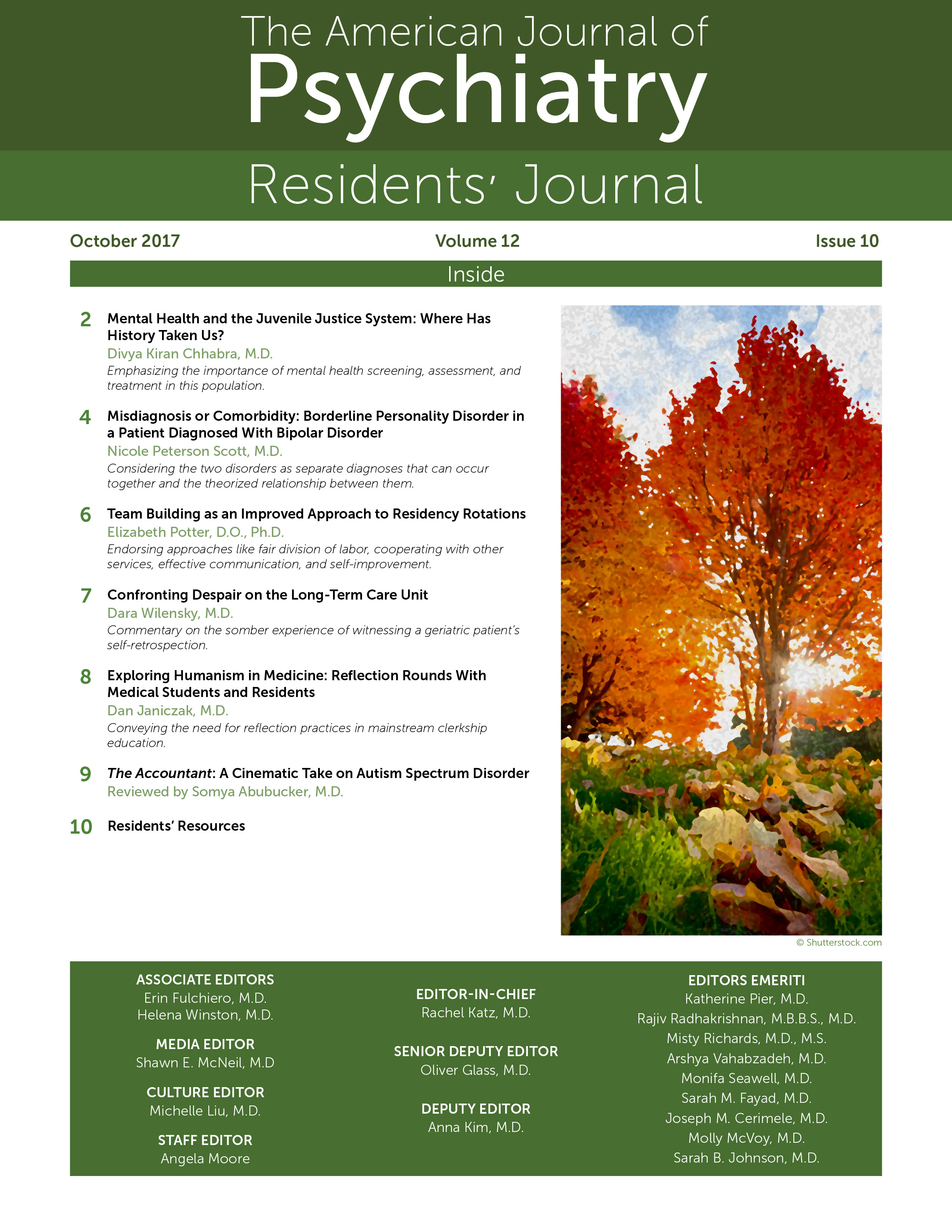Team Building as an Improved Approach to Residency Rotations
A meta-analysis published in JAMA found that the prevalence of depression among resident physicians stands at about 29% and that depression may affect the long-term health of resident doctors (1). In light of this, the following recommendations are proposed to improve the residency work environment.
Respect
I routinely treat fellow residents and co-workers with respect. This engenders confidence and allows my team to better integrate with diverse populations. I show respect for the customs and beliefs of others and refrain from discussing political or divisive subjects at work.
Fair Division of Labor
Residents are frequently assigned a “team leader” responsible for the smooth operation of their team. As team leader, I refrain from exploiting other residents, subinterns, or medical students. If a team leader is unfair, team members resent this, work less efficiently, and employ an ineffective management style when they (in turn) become team leaders. Alternatively, if a team leader is fair in dividing tasks, team members may volunteer to take on more duties and work longer hours to improve the quality of the team’s work.
Start With Positive Reinforcement
I praise my team members for work well done. A project manager at Brazil’s Institute of Aeronautics and Space noted that “positive reinforcement leads to better cooperation among team members more than rewards and coercion” (2). Neuroscientists recently demonstrated that increased motivation to perform tasks was critically dependent on activating the brain’s dopaminergic “reward” system (3). Thus, positive reinforcement not only boosts morale, it effectively increases productivity of the team. If positive reinforcement does not resolve the issue, I inform a noncompliant team member of the negative consequences that may follow.
Ask for Volunteers
I solicit volunteers to perform various tasks. Team members know their strengths better than anyone else and often volunteer in order to showcase their strengths. This enhances the team’s effectiveness.
Cover for Each Other
If a team member says he or she cannot report to work, I assess whether the reason is legitimate. If so, I tell the team member, “We are here to help. We have your back.” If the reason is not legitimate, I stipulate that unauthorized absences must be made up with additional work days. Team morale will be enhanced when such issues are resolved fairly.
Cooperate With Other Services
When hospital workers from another service call my team for help, we show respect and respond promptly to resolve the situation. This improves cooperation among hospital teams.
Communicate Effectively
We use HIPAA-compliant applications for secure text messaging to team members (4). Many attending physicians prefer a voice phone call, so we must be mindful of the surroundings in order to protect patient information.
Work on Self-Improvement
I frequently solicit feedback from friends and co-workers. This helps me overcome personal shortcomings and become a more effective team member and team leader.
Conclusions
While the above practices are not a panacea against the inevitable stresses associated with a medical residency, they may ameliorate the conditions leading to depression among our resident physicians.
1. : Prevalence of depression and depressive symptoms among resident physicians: A systematic review and meta-analysis. JAMA 2015; 314(22):2373–2383 Crossref, Google Scholar
2. : Learning the hard way. PM Network 2013; 27(3):22–24 Google Scholar
3. : Mesolimbic dopamine signals the value of work. Nat Neurosci 2016; 19(1):117–126 Crossref, Google Scholar
4. https://www.hipaajournal.com/hipaa-texting-policy/ Google Scholar



